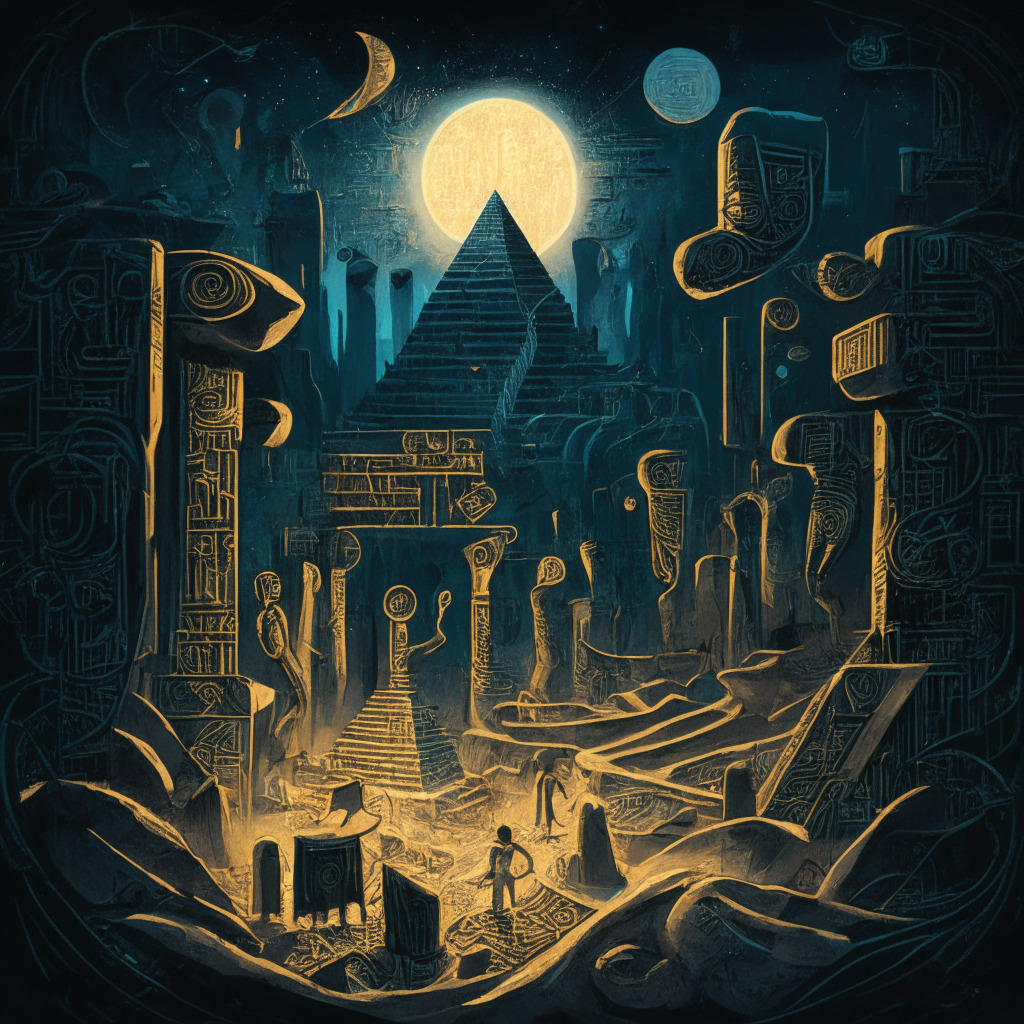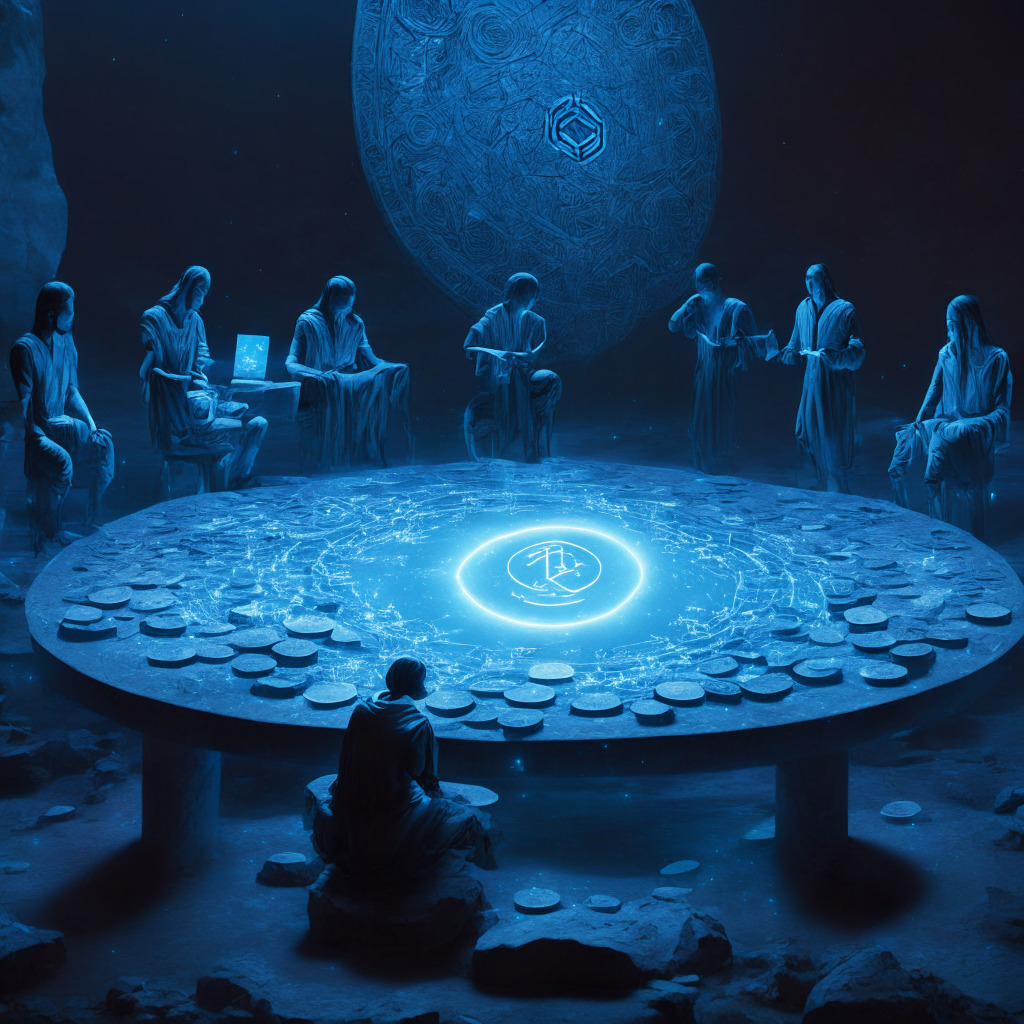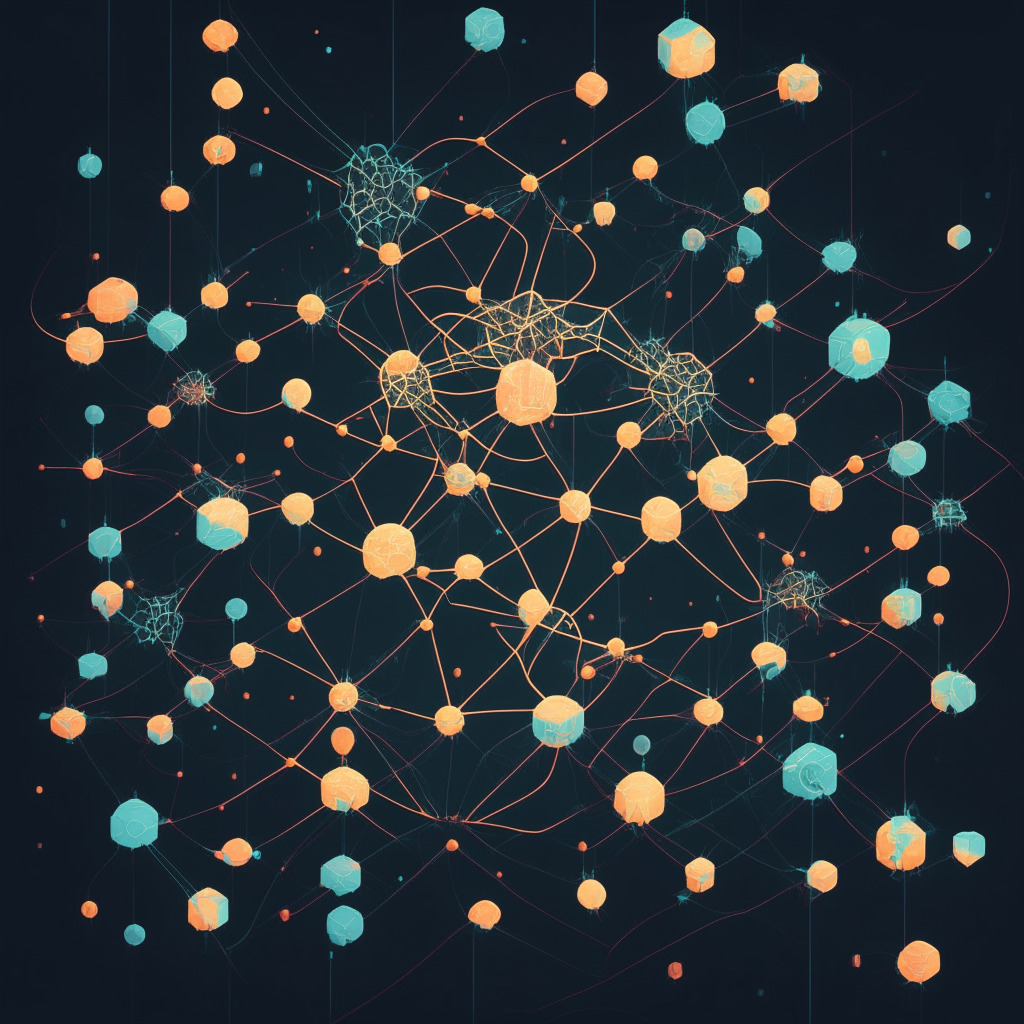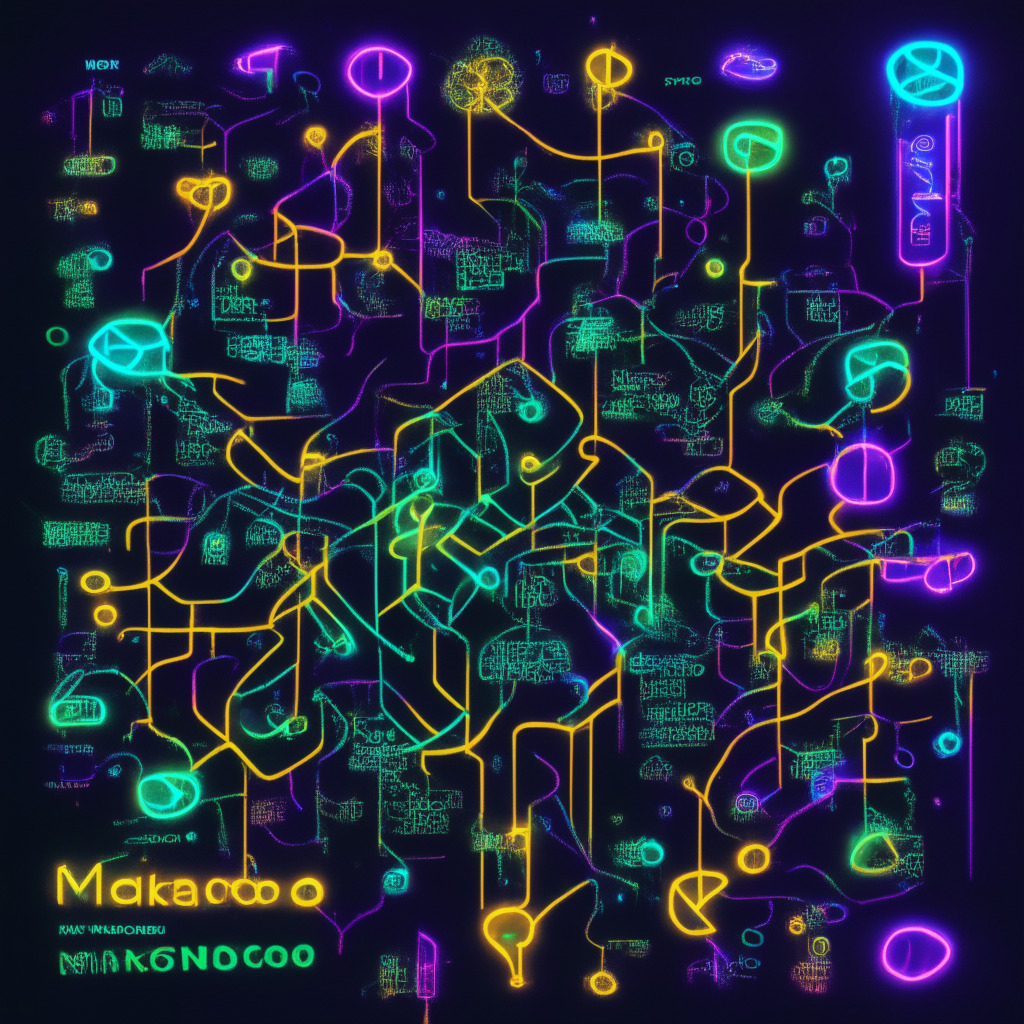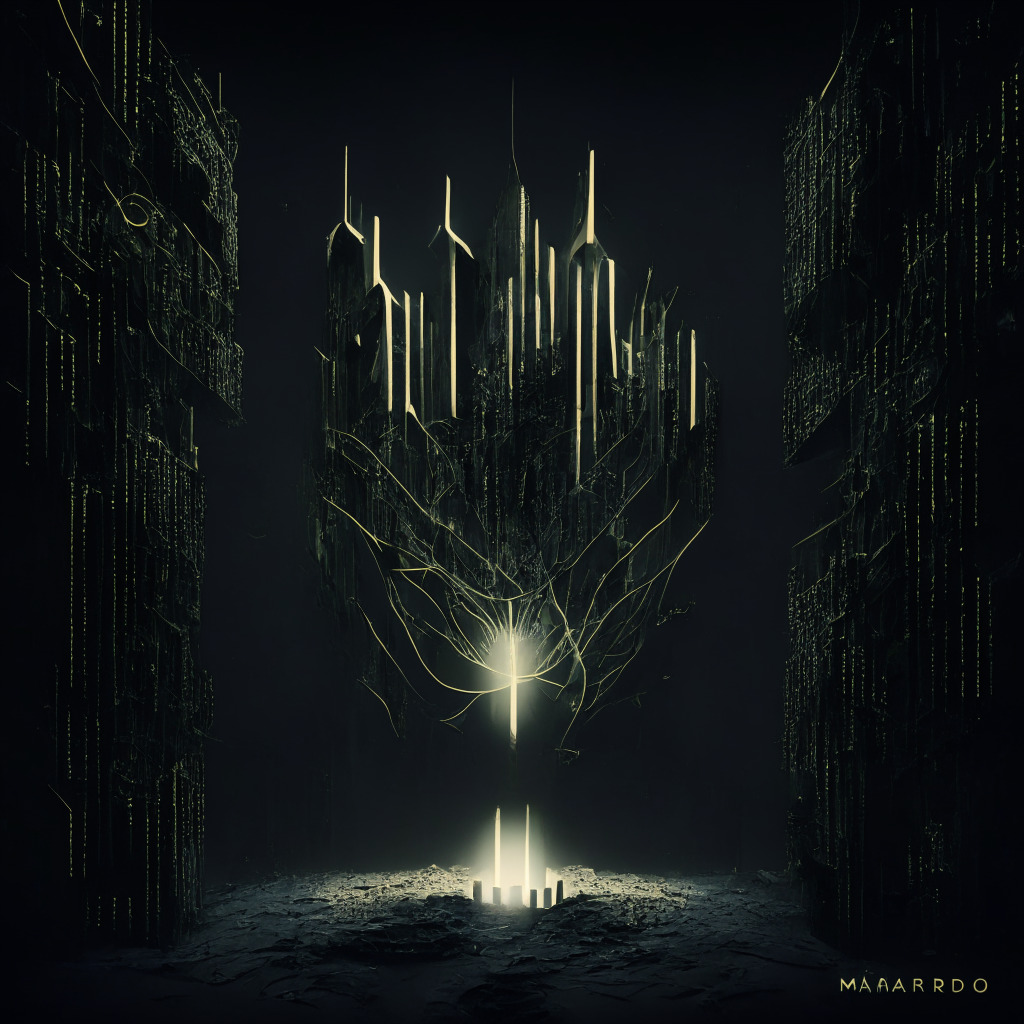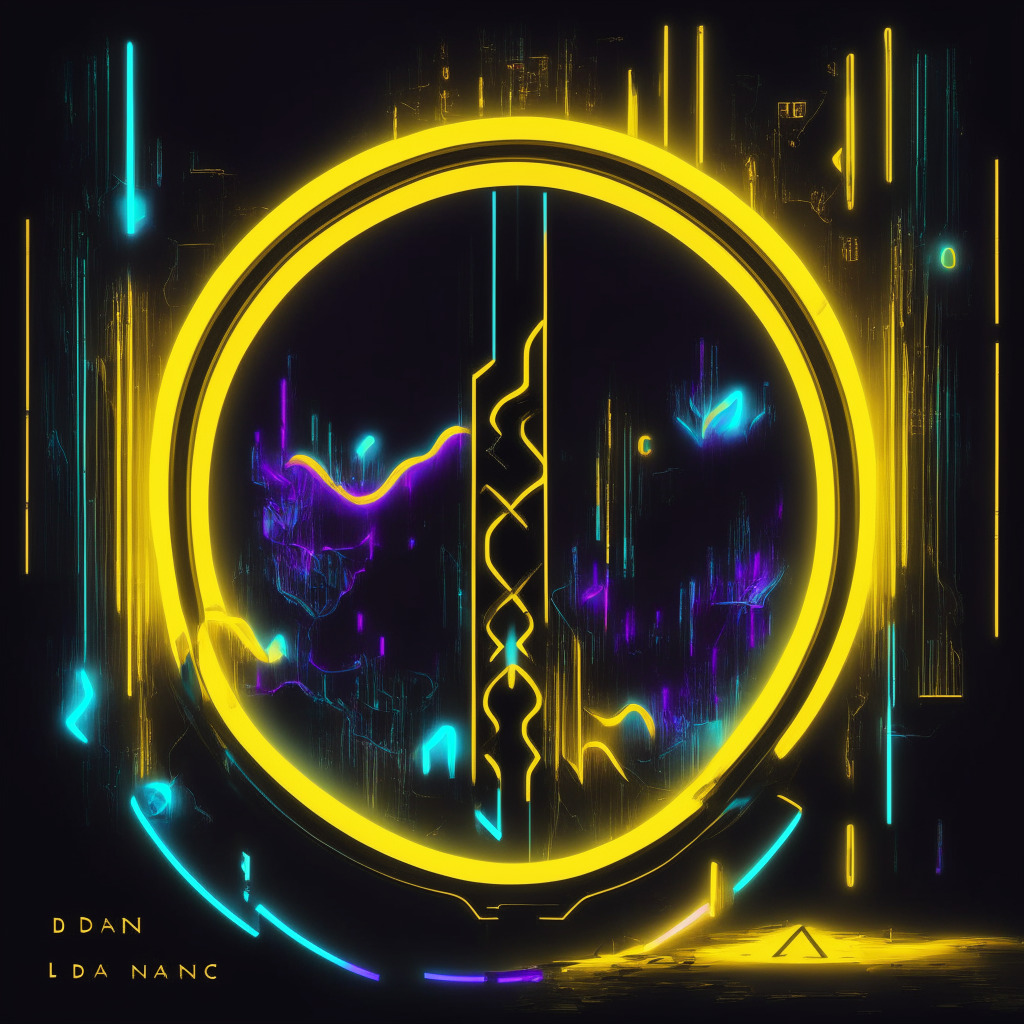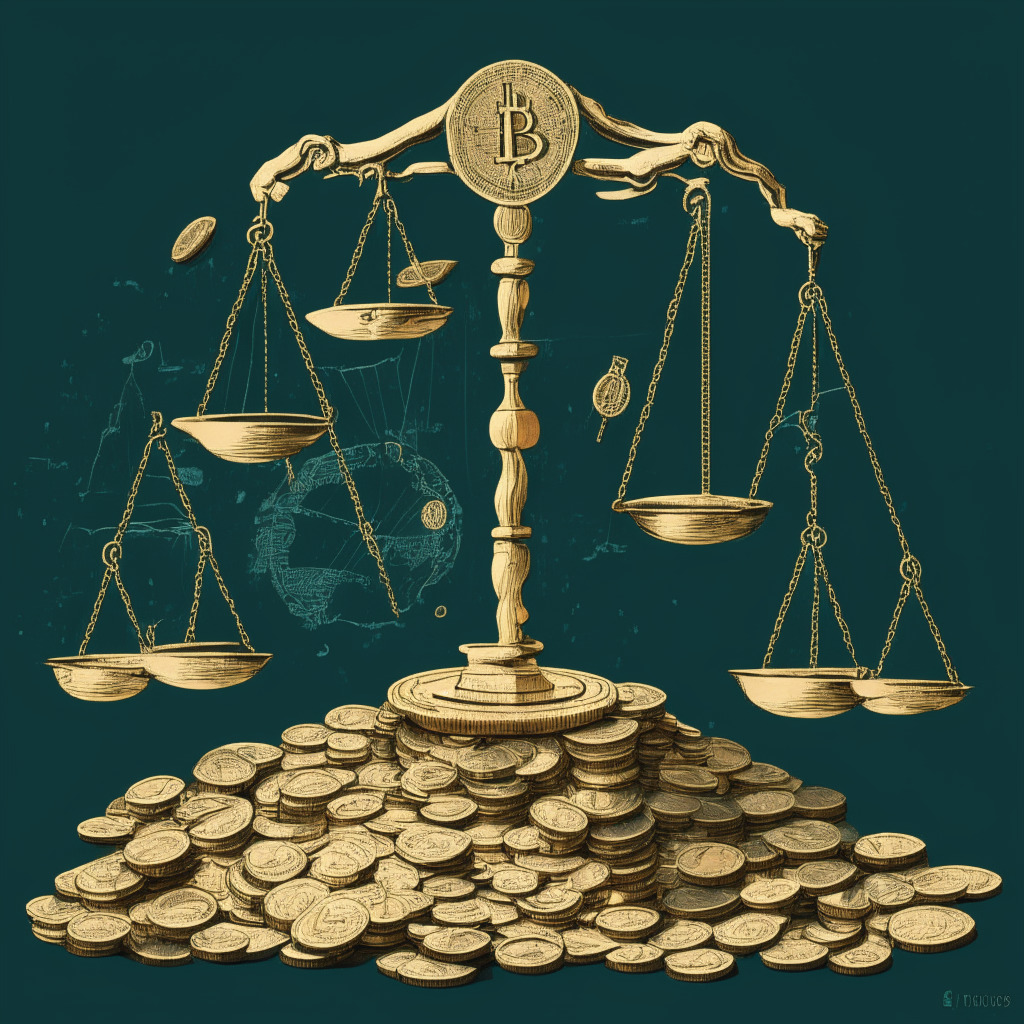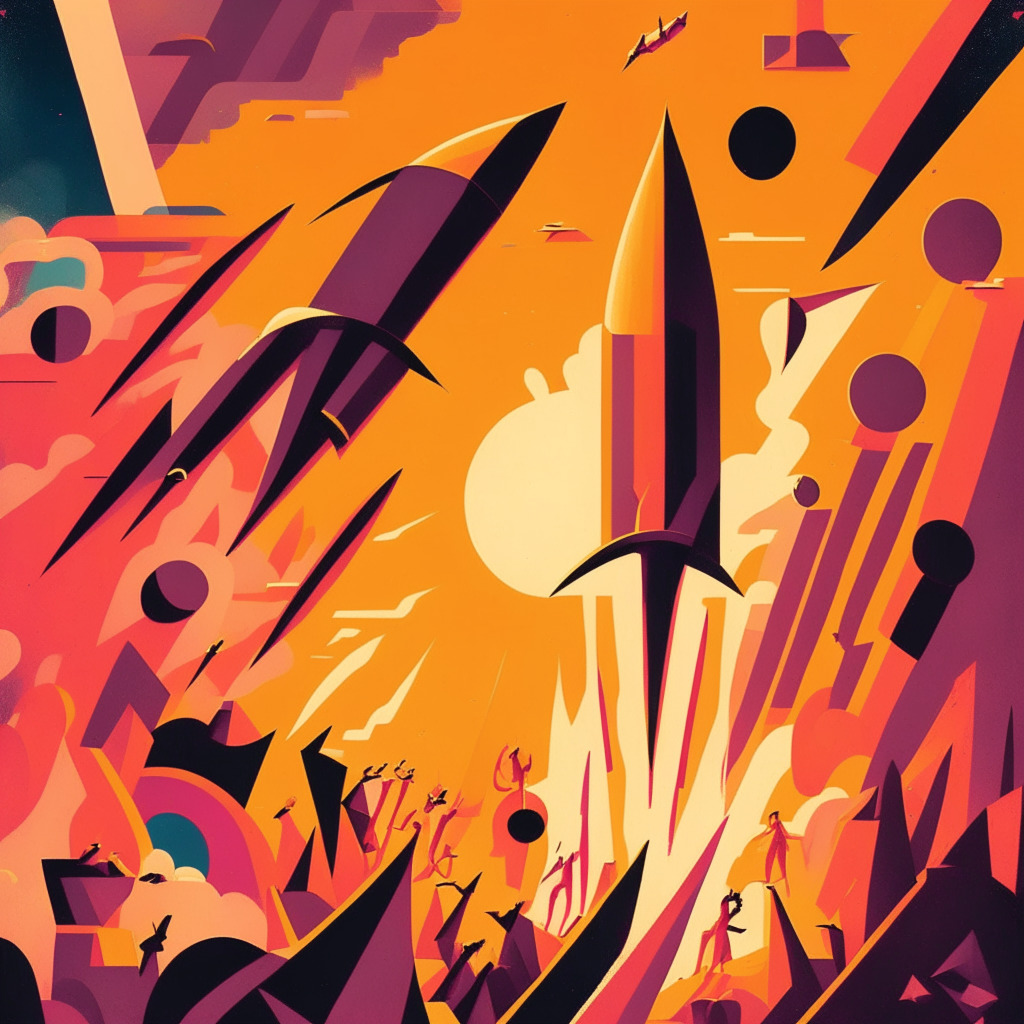“The AnubisDAO rug pull, which led to a loss of 13,556 Ether, i.e., $60 million, within 20 hours, has controversially involved Kevin Pawlak, the former head of ventures at OpenSea. While accusations link Pawlak with pseudonymous entity “0xSisyphus”, lack of concrete evidence dims their credibility. This presents pressing issues of accountability and transparency in the unregulated cryptocurrency industry.”
Search Results for: DAO
The Splintering of FloorDAO: Activist Investors and the Battle for Crypto Governance
Crypto group FloorDAO, devoted to NFT finance, has split into two factions due to disagreements. One splinter group, FloorkDAO, transferred over $2.5 million from FloorDAO’s treasury and initiated a redemption process for FLOOR tokens. This split highlights increasing influence of activist investors in DAOs.
JPEX DAO Conversion Controversy: User Asset Lock-Up Proposal Fuelling Further Turbulence
“Hong Kong-based cryptocurrency exchange JPEX is attempting to convert into a Decentralized Autonomous Organization (DAO), proposing to lock user assets for two years to transform into DAO Stakeholder dividends. However, this proposal has sparked criticism regarding non-consensual asset conversion and possible voting manipulations, questioning the exchange’s credibility.”
The JPEX Saga: An Unsettling Dive into DAOs, Dividends, and User Authorisation Debacle
Cryptocurrency exchange JPEX’s controversial transition into a decentralized autonomous organization (DAO) and its DAO Shareholder Dividend Scheme have led to allegations of unauthorized operations and duping, prompting regulatory scrutiny. This situation underscores cryptocurrency’s dynamic opportunities and potential risks, highlighting the need for education, vigilance, and prudent regulation in this evolving digital landscape.
Crypto Drama: The Unfolding Controversy Surrounding JPEX’s DAO Stakeholder Dividend Plan
JPEX, a controversial Hong Kong-based crypto exchange, is pushing ahead with its Decentralized Autonomous Organization (DAO) Stakeholder Dividend Plan amidst a $191 million financial scandal. Despite approval from 68% of users, the plan, which lets investors convert holdings into DAO dividends, has raised suspicions due to unclear exchange rates and restrictions on withdrawals. Critics question the plan’s economic tenability as arrests and investigations continue.
Revolutionizing Scientific Funding: The Emergence of DAOs and Blockchain Technology
“Decentralized Autonomous Organizations (DAOs), utilizing blockchain technology, are advocated by Nature science journal as transformative in securing funds for underfunded research fields. By disrupting traditional funding models, DAOs democratize funding procedures, potentially realign resources from only prestigious institutions to more varied sectors.”
Ethereum Co-founder’s Warning: DAOs and Vulnerabilities in Staking Pools
In his recent blog post, Ethereum co-founder Vitalik Buterin expressed concerns over Decentralized Autonomous Organizations (DAOs) dominating liquid staking pools, potentially opening doors to network vulnerabilities. He emphasizes the importance of engaging with various liquid staking providers to mitigate systemic risks.
Burning Man and DAOs: A Hybrid Model for Decentralized Governance and Broader Adoption
“Decentralized Autonomous Organizations (DAOs) could gain broader acceptance and adoption by marrying central planning with decentralized governance. This hybrid model could allow DAOs to gain recognition outside the crypto sphere, potentially fostering broader appeal and breaking away from their crypto rigidity.”
Innovative Incentives or Short-Term Opportunism? Trader Joe’s Ambitious Proposal for Arbitrum DAO
Trader Joe, a leading decentralized exchange operating on the Avalanche blockchain, aims to strengthen its liquidity through a 1.83 million ARB grant from Arbitrum DAO. The DEX intends to contribute to the growth of the Arbitrum ecosystem using its innovative Market Making Incentives Program and Auto-Pool product. Implementing this strategy, Trader Joe will promote development and innovation within the Arbitrum ecosystem, fostering community-first relationships.
Arbitrum’s Swift DAO Maneuver: A Power Leap or a Fall into Uncertainty?
The Arbitrum Foundation recently transferred unclaimed tokens worth $56 million into their network’s decentralized autonomous organization (DAO) treasury. While offering new governance possibilities, this move also carries risks and obligations for token holders, speaks volumes about the future for Arbitrum’s users, and poses questions about the speed of tokenizing and redistributing actions within just six months of their DAO launch.
The Rollercoaster Ride of DAOs: Marvel of Decentralization or Havoc Waiting to Happen?
“Decentralized autonomous organizations (DAOs) manage a massive $17.2 billion in value. However, DAO governance is filled with numerous failures, underlining the need for improved DAO infrastructure and governance. Challenges of balancing decentralization and efficient product-market fit persist. Tools like Senate and Goverland aim to integrate DAO voting into single platforms, enhancing participation.”
NounsDAO’s Treasury Split: Unraveling the Rage Quit Phenomena in DAOs
NounsDAO, a key NFT player, faces potential treasury split driven by unsatisfied holders seeking better returns. Newly approved guidelines allow a ‘fork’ leading to an operational split. The situation highlights similar ‘rage quits’ within decentralized autonomous organizations (DAOs) as investor faith wavers.
P2P Team’s $1.5M Funding Request: Crucial Move or Risky Gamble for Lido DAO and Solana Ecosystem?
The P2P team is seeking a $1.5 million investment from staking provider Lido DAO to extend its services on blockchain network Solana. The funding will cover development costs and promotional activities, failing which, a ‘sunset process’ for Lido on Solana might need initiation. Funding would also foster innovation, expansion and contributions to the Solana ecosystem.
Shifting Alliances in Crypto Winter: MakerDAO’s Migration and Ethereum’s Controversy
“In the midst of a crypto winter, the blockchain industry is innovating and adapting. Major shifts like MakerDAO’s potential move from Ethereum to Solana or Cosmos depict this change. Discussions suggesting Ethereum should have a “Supreme Court” for disputes also indicate this evolution. Amid technological advances, the volatile crypto world is reminded: “Money doesn’t materialize out of thin air.””
Unleashing AI in Blockchain: The Future of DAOs or a Digital Divide Catalyst?
“Co-founder of Framework Ventures, Vance Spencer, suggests that AI could bring true “autonomy” to DAOs and envisions AI models becoming valuable on-chain assets. While this potential convergence of AI and blockchain holds promise, it also raises concerns about maintaining human oversight and preventing further digital divide.”
Harnessing Politics to Navigate DAOs: A Balance of Efficiency and Decentralization
“Decentralized Autonomous Organizations (DAOs) aim to balance efficiency and decentralization, akin to political organizations. Despite their distinct advantages, DAOs often face challenges like flawed governance, communication issues, and skewed participation leading to diluted long-term objectives. Strategies from politics, including electing representatives and preference-based decision-making, could be instrumental in overcoming these drawbacks.”
Ethereum’s Co-founder Sells Remaining Stake in MakerDAO: A Signal for Blockchain’s Future?
Ethereum co-founder, Vitalik Buterin, recently traded his remaining stake in MakerDAO tokens after MakerDAO’s co-founder announced plans to reimplement the project on a new blockchain, NewChain. The move shows shifting alliances and notable developments in blockchain dynamics.
MakerDAO’s Blockchain Future: Exploring a Forked Solana Codebase and Risks Involved
MakerDAO’s co-founder, Rune Christensen, proposes the use of a forked Solana codebase to build ‘NewChain’, MakerDAO’s prospective blockchain. Despite connections with Ethereum, this has generated interest and skepticism within the decentralized finance domain. This marks a possible change in direction for MakerDAO’s projects.
Decoding the Future of MakerDAO: Might Solana be the Answer?
Rune Christensen, co-founder of MakerDAO, proposes the platform’s future blockchain should be built using Solana’s codebase, citing its high-speed performance. Despite support for the idea, community members raise questions about the research backing this proposal, suggesting alternative solutions might exist.
MakerDAO’s Counter-Market Surge: A Profitable Anomaly or a Dangerous Catch?
Despite the downturn in cryptocurrency prices, Maker (MKR) saw a significant rise due to modifications made to its lending rates in its core strategy. This reflects in MakerDAO’s recent bounce back to profitability, contrasted by a crypto market drop. The platform also launched a token buyback plan, boosting investor profits. Nevertheless, caution in investing practices is advised due to the unpredictable nature of the crypto space.
MakerDAO’s Investment Risk: Parsing the Pros and Cons of Blockchain Credit Platforms
An upcoming default on tokenized loans threatens blockchain-based platform, MakerDAO’s $1.84 million investment. A borrower from the credit pool, currently in a court dispute, is on the edge of liquidation, raising questions about the robustness of blockchain credit platforms.
CurveDAO’s Crash and Sonik Coin’s Rise: Navigating the Volatile Crypto Markets
“CurveDAO faced a $61m theft, causing a 20% price nosedive. Despite indications of recovery, CRV prices remain low. Contrarily, Sonik Coin, offering a 209% APY, has raised $350,000 before presale, aiming for a $100 million market cap.”
Decoding the Legal Matrix: Tornado Cash, DAOs, and the Future of Blockchain Oversight
A recent legal case saw a federal judge approving U.S. Treasury’s sanctions on Tornado Cash, a crypto tool allegedly used by North Korea for money laundering. The ruling, which validated an enforcement action against a Decentralized Autonomous Organization (DAO), sets a compelling precedent for DAOs’ future role in crypto projects.
Binance Labs’ $5M Pledge to Curve DAO: A Growth Bet or Security Paradox?
“Binance Labs invests $5 million into Curve DAO Token (CRV), the operating token for Curve decentralized exchange. Despite recent hacking losses, Binance co-founder, Yi He, sees this partnership as crucial for the future growth of the DeFi ecosystem.”
MakerDAO Blocks VPNs: Privacy Vs Profit in the Decentralized Finance World
MakerDAO’s Spark Protocol blocking access to its lending platform for VPN users has caused uproar among privacy enthusiasts. This move, aimed to prevent U.S. users from interacting with the Spark Protocol, has been criticized for potentially compromising personal privacy.
TwitterDAO’s Surge and Wall Street Memes’ Rise: Navigating the Unpredictable Crypto Markets
“The recent emergence and dramatic value increase of TwitterDAO points to both the potential high rewards and risks of crypto markets. $WSM, a promising crypto investment, offers a secure yet rewarding option with a significant token supply for community rewards, evidencing a strong democratic orientation.”
Golf Meets Blockchain: LinksDAO Drives Revival of Golf Clubs with NFTs and New Membership Tiers
“LinksDAO, a global golf community, combines golf with blockchain technology, launching its non-fungible token (NFT) membership collection and earning $10.5 million. The memberships offer perks such as governance voice and access to a crowd-funded golf club, revolutionizing traditional membership experiences.”
Unleashing the Future: The Role of AI-Driven DAOs in Reshaping the DeFi Landscape
“Former BitMex CEO Arthur Hayes envisions a future where Decentralized Autonomous Organizations (DAOs) powered by AI could revolutionize the DeFi space. These AI DAOs, such as PoetAI, offer transparency, resilience against government control, and operational efficiency through cryptocurrencies like Ethereum. Platforms like Ethereum could greatly benefit from this new DeFi landscape. However, questions remain about the maturity of the DeFi arena and the readiness for fully autonomous DAOs.”
Unveiling Israel’s Approach to DAOs: Scrutinising the Crypto-Driven Architecture for Development
The Israeli government is conducting an exploratory examination on the regulation of Decentralized Autonomous Organizations (DAOs), scrutinizing the involvement of crypto tokens and assessing the risks involved. The aim is to strike a balance between encouraging innovation and preserving stakeholders’ interests. This includes considering corporate status, taxation, and other facets to stimulate the economy.
Israel’s Examination of DAOs: Democratizing Decision-Making and Dissecting Risks
The Israeli government has created a team to examine the world of decentralized governance organizations (DAOs). Comprised of high-ranking officials, the team will explore the potential uses, activities enabled, and decision-making processes inherent to DAOs, as well as the risks associated with their use of native crypto tokens. Through an open dialogue with the public and innovators in the space, this initiative aims to provide regulatory clarity in the crypto industry, a prized goal within the sector.
Andreessen Horowitz Cashes In on MakerDAO Tokens Amidst Decentralization Debate
Andreessen Horowitz (a16z), venture capital giant, has reportedly sold some of its investments in the crypto lender MakerDAO’s MKR governance tokens. Tracking by Ethereum blockchain Etherscan revealed $7 million of MKR being moved from a16z’s crypto wallet. It appears that the value of these tokens peaked last Friday, following a new token buyback scheme, prompting the sale. This sale comes despite a16z holding a significant amount of MKR, and amidst a major overhaul of the MakerDAO protocol.
Climate Change & DAOs: Dueling Challenges for Marshall Islands – A Blockchain and Environmental Struggle
“The International Monetary Fund points to future instability for the Republic of Marshall Islands due to climate change and its embrace of blockchain technology through decentralized autonomous organizations. While noting possible benefits of green finance, it also cautions that digital ventures may impact the country’s financial stability.”
